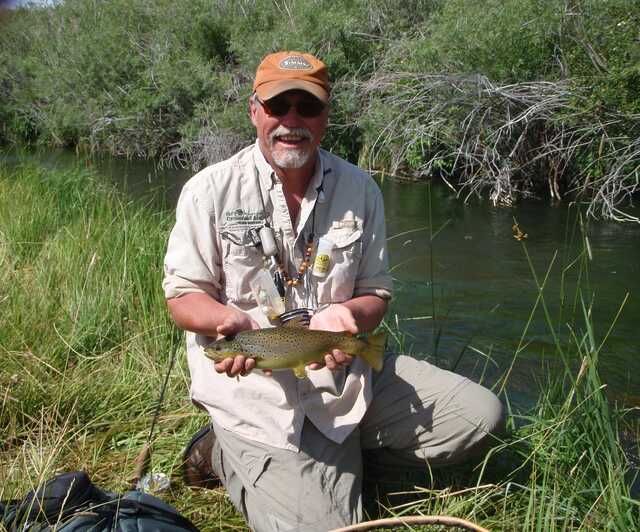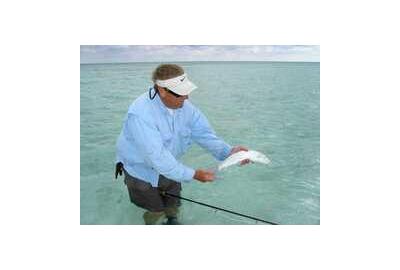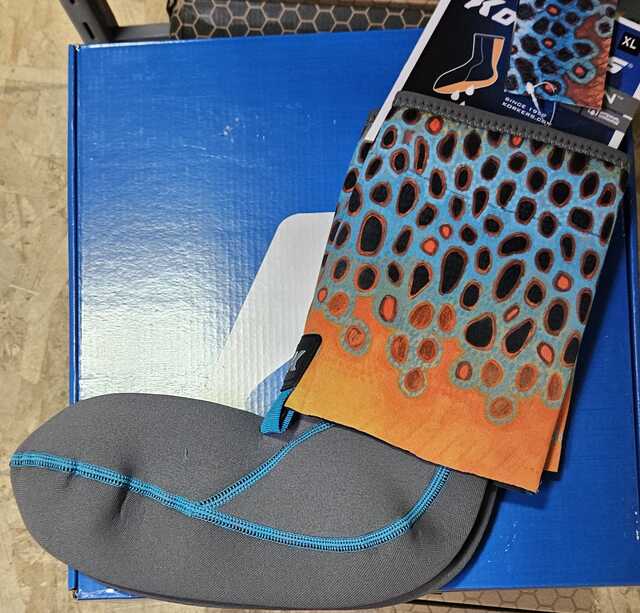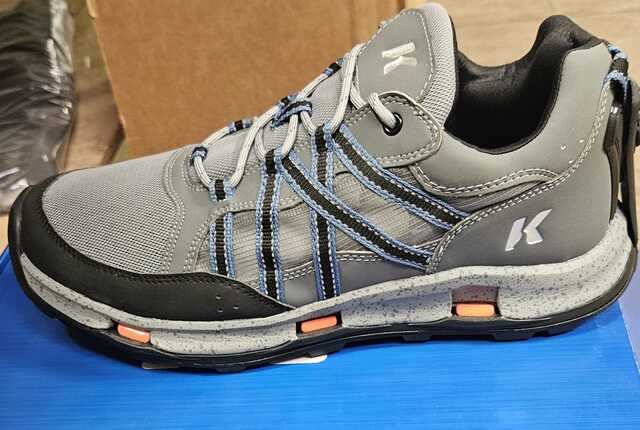One of the nicest things for anglers is the arrival of warm summer days and the opportunity to wade wet. Being unencumbered by the waders that make life on the stream bearable for the other 3 seasons. Along with being sans waders I find that I tend to lighten the whole load when wet wading. Instead of a loaded vest or sling pack I might use a small chest pack or a waist pack or maybe just a few flies and some floatant in a shirt pocket. Sometimes less is more, even in fly fishing. It can also be a suitable time to introduce a newcomer to the sport without the expense of a ton of gear. Let them wade wet in a small brook trout stream, catch a bunch of fish without the hassle of waders and other gear.


One of the main considerations when deciding whether or not to wet wade is the water you will be fishing in.
Small mountain streams are good choices because while the water may be quite cold you will rarely be more than knee deep and if you do get chilled the bank is usually only a couple of steps away. In fact, a lot of your fishing might well be from the bank and crossing the creek or stream may well be the only time you get wet. Larger spring creeks and tail water fisheries below bottom draw dams will quite often be too cool for the wet wader to be comfortable. If fishing from a drift boat or raft you may want to dress to wet wade and throw your waders into the boat just in case you get chilled or the weather changes for the worse.
When wading wet I wear my wading boots and fill up the extra room in the foot from the missing waders with a wet wading sock. These usually come with gravel guards which as the name suggests keep sand and gravel from getting in between your sock and boot.
The Korkers brand also have some with a Brown Trout design on them, both fashionable and functional. The sock you wear under the wading sock should not be a material that absorbs water, such as cotton. Synthetic materials that shed or repel water will help foot wetness to a degree. For something lighter there are several wading shoes available including the All-Axis shoe from Korkers, they provide foot protection as well as good drainage and lightweight comfort. I have seen anglers wearing everything from flip flops, slides, Crocs and running shoes but be warned, none of these will provide you with the traction and comfort of a rubber soled wading boot. If you are going to wear sandals a closed toe is a must, it’s amazing how many times you bang your toes in a day, not noticeable in wading boots or shoes but quite painful in open toed sandals.
I also usually wear a pair of quick dry fabric wading pants, I find that they protect my legs from brambles and briars and such when walking to and from the stream and along it’s bank. They also help to protect against biting insects. Shorts are acceptable as long as you’re not dealing with this type of streamside vegetation or bugs. Shorts can open you up to sunburn so be careful of this. One of the advantages is that if you fall in with waders on not only are you struggling to get up and out of the water but even after you drain the water out of the waders you are still wearing wet clothes covered up with damp waders. A slip and fall while wet wading will be much easier to recover from and your clothes exposed to the air and sun will dry quite quickly, and on some days can also be quite refreshing.
Another way to go, although it looks a little goofy, is “New Zealand” style. With this you wear leggings with shorts over top. In New Zealand they cover a lot of distance in a day of fishing, stalking and targeting individual fish. This attire gives them freedom of movement and at the same time provides leg protection from vegetation. It hasn’t really caught on in North America but a few anglers I know swear by it.
Along with your shorts or pants you will also want shirts that are breathable and have pockets designed to carry a fly box and a few leaders etc. if you decide to go full on minimalistic. If you need more carrying capacity there is a wide variety of choices available, from single compartment chest packs to sling packs and waist packs that carry as much or more than a vest does.
Remember that you will need to keep a few things waterproof in case of a dunking, keys, wallets and phones should be safe. I use zip lock bags; freezer bags are the most durable and reliable I find. You can also purchase waterproof cases of assorted sizes and configurations that will also do the trick.
All of these things can be carried over into salt water fly fishing if you are lucky enough to visit some tropical locations in the winter. Saltwater fly fishers have been wet wading for years.
So once you get the chance downsize your gear and attire and give wet wading a go, you won’t be sorry.








